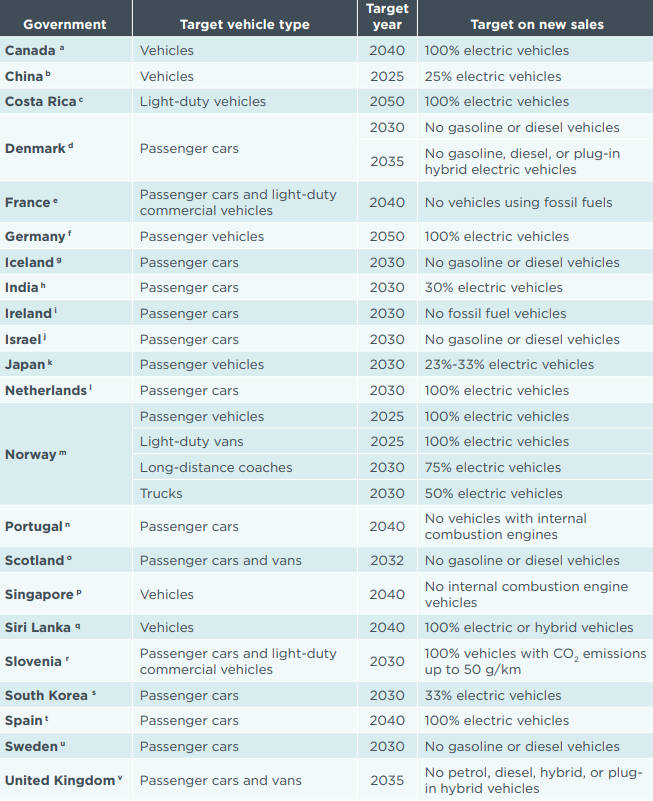On Electric Vehicles - in California and Globally
Photo by CHUTTERSNAP
Last week, California Governor Gavin Newsom signed an executive order on electric vehicles. Comments included:
"he will aggressively move the state further away from its reliance on climate change-causing fossil fuels … requiring sales of all new passenger vehicles to be zero-emission by 2035 and [pursue] additional measures to eliminate harmful emissions from the transportation sector …
"The transportation sector is responsible for more than half of all of California’s carbon pollution,”
Note: California represents over 11% of light vehicles in the U.S.
Electric car offerings available during 2020-2021 include: Audi e-tron, BMW i3, BYD e6, Chevrolet Bolt EV, Ford Mustang Mach-E, Jaguar I-PACE, Hyundai Kona Electric, Kia Niro EV, Mini Cooper SE, Nio ES6 & ES8, Nissan LEAF, Porsche Taycan, Renault ZOE, Tata Nexon EV, Tesla’s various models, Volkswagen ID and Volvo Polestar.
An International Council on Clean Transportation Briefing (July 2020) discussed global EV trends and said,
“More than a dozen countries, mostly in Europe, have proposed a timeline to phase out new sales of fossil fuel passenger cars or to only sell zero-emission models by 2050. Among them, Norway has the most ambitious target …
"Comparatively, major markets in Asia, including China, Japan, India, and South Korea, are less ambitious …
"The United States, the second-largest vehicle electric market worldwide, does not have a federal-level vehicle electrification target.”
The chart below overview EV targets set by 18 countries.
Source: various
OUR TAKE
As California joins other EV initiatives, its efforts will likely be contested by various industry groups and US federal agencies.
Factors that will influence consumer demand for EVs include purchase, maintenance, and insurance costs - as well as the performance, style, reliability, and availability of the vehicles.
To meaningfully reduce the transportation sector's impact on the environment will require: 1) more EV truck and SUV offerings, 2) exploring the potential of hydrogen fuel cell vehicles (efforts are underway by Hyundai, Honda and Toyota), 3) understanding the fossil fuel use by utilities to service EV demand and 4) expanding public transportation options.


